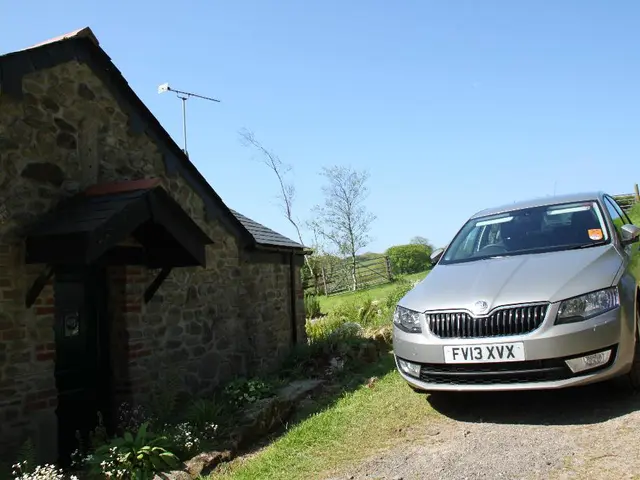London's Evolution Toward Community-Based Energy Sources
COMMUNITY-led energy projects have emerged as a promising approach to bridge the energy gap between low-income households and wealthier strata, notably in urban settings. In London, where the idea is gaining momentum, Éva Goudouneix, a community energy facilitator, explains how this decentralised model is taking root and the advantages it offers.
Renewable energy sources are essential in decarbonising the energy sector, yet deep retrofits remain inaccessible to many low-income families. Community energy provides an equitable alternative by empowering local communities to generate and distribute clean power.
Éva Goudouneix is the Community Development Manager at Repowering London, a social enterprise enabling disadvantaged urban communities to participate in the green energy transition through community energy hubs. In this interview, she discusses the impact of these projects on the people involved.
What is Community Energy?
Community energy (CE) is generated not by big businesses but by local groups or cooperatives, who invest in and manage renewable energy infrastructure. Power-generating apparatus can be installed on homes, commercial properties, and public buildings, with a legal structure to finance and establish renewable energy at these sites. By purchasing shares, residents become members and participate in the project's decision-making.
Europe is a global frontrunner in developing community energy projects, with over 2,500 renewable energy cooperatives present in the European Union. Data from the UK government indicates an additional 5,000 projects on home soil [UK GOVERNMENT DATA].
London's Leading Role
Britain's capital is setting an example as a global hub for community energy initiatives. For information on many of the active organisations across London's boroughs, consult Community Energy London. Their map highlights community energy projects across the city to help people engage and share knowledge [COMMUNITY ENERGY LONDON MAP].
Local groups vary in their focus and strategy. Repowering London (Repowering), for example, leverages expertise and innovation to create energy-efficient solutions while providing dedicated casework to help tenants struggling with energy bills. Meanwhile, CREW in Wandsworth offers bill-checking services, tips for reducing energy costs, and Home Carbon Audit services to assess households' carbon footprints and introduce energy-efficient practices [CREW ENERGY CAFÉS; HOME CARBON AUDIT].
How Does It Work?
A community group forms and identifies a suitable site for the transition. Repowering initiates a community share offer, attracting investments from a broad range of individuals. A majority of investors are affluent older individuals who respond to crowdfunding campaigns out of a desire to support green initiatives [CROWDFUNDING CAMPAIGNS]. These investors become members who collectively decide how the co-op operates.
Repowering then assists the co-op in purchasing and installing photovoltaic (PV) units on a public building or site, such as a school or community centre. The clean energy is sold directly to the site at a discount, reimbursing investors while funding community initiatives [COMMUNITY FUND].
Social Benefits
Community energy projects are, in essence, Community Benefit Societies. Unlike traditional cooperatives, they direct revenue not solely to members but also back into the community at large, supporting food banks, community centres, and other local projects [ÉVA'S INTERVIEW]. In the context of energy poverty and interlinked challenges, these essential services can have a significant impact.
Breaking Down Barriers
Energy poverty links to difficulties in other areas of life, such as finding employment, dealing with mental health issues, and struggling to pay for essentials. High energy bills exacerbate mental health problems and correlate with inadequate nutrition [ÉVA'S INTERVIEW]. By considering energy as a basic right, we can work towards addressing these issues and promoting better overall wellbeing.
Volunteering Opportunities
Not everyone can invest financially, but that doesn't exclude them from participation. Éva's work includes connecting with countless volunteers passionate about the cause. These individuals offer invaluable expertise, from public speaking and marketing to technical know-how, in support of the project [REPOWERING'S VOLUNTEERING]. Many of these volunteers are young, local residents equipped with the skills to advance careers in renewable energy [REPOWERING'S PAID YOUTH TRAINING PROGRAMME].
Challenges Ahead
Despite the potential benefits, setting up and maintaining community energy projects face obstacles. Lack of expertise in navigating legal requirements, financing models, and technical assessments can hinder progress [ÉVA'S INTERVIEW]. Repowering supports these initiatives by providing expert guidance in the often complex and bureaucratic processes [REPOWERING'S EXPERTISE].
Another key challenge includes prohibitive regulations, such as the requirement for a supplier's license to sell electricity. Repowering and other community energy organisations are advocating for change in this regard [ÉVA'S ADVOCACY]. Meanwhile, the UK government is considering a bill that would enable community energy groups to sell their electricity, potentially paving the way for more widespread adoption [INTENDED BILL].
In London, even energy giants like EDF are supporting Repowering's trial of resident energy trading, further underscoring the changing landscape of the energy sector [EDF COLLABORATION].
Looking Ahead
Éva emphasises the importance of continued financial support to ensure the viability of more community energy projects and the positive impact they can have on local communities and the environment. Concurrently, addressing barriers such as regulations and complex processes is critical to unlocking greater potential for community energy [ÉVA'S INTERVIEW]. By empowering communities to generate and utilise their own renewable energy, London is leading the way in a more equitable, sustainable, and carbon-neutral future.
- The approach of community energy, which involves local groups or cooperatives investing in and managing renewable energy infrastructure, offers an equitable solution to deep retrofits that remain inaccessible to many low-income families, helping bridge the energy gap between low-income households and wealthier communities.
- In the realm of environmental science, community energy projects are environmentally friendly initiatives that contribute significantly to the fight against climate-change by generating clean power from renewable sources like solar and wind energy, thereby reducing the reliance on fossil fuels and lowering carbon emissions across industries.
- Financial support is essential for the viability of more community energy projects, as these projects can have a positive impact on local communities by supporting essential services, fostering environmental sustainability, and providing educational and employment opportunities in the renewable energy sector, thus contributing to the city's economic growth and financial stability.








